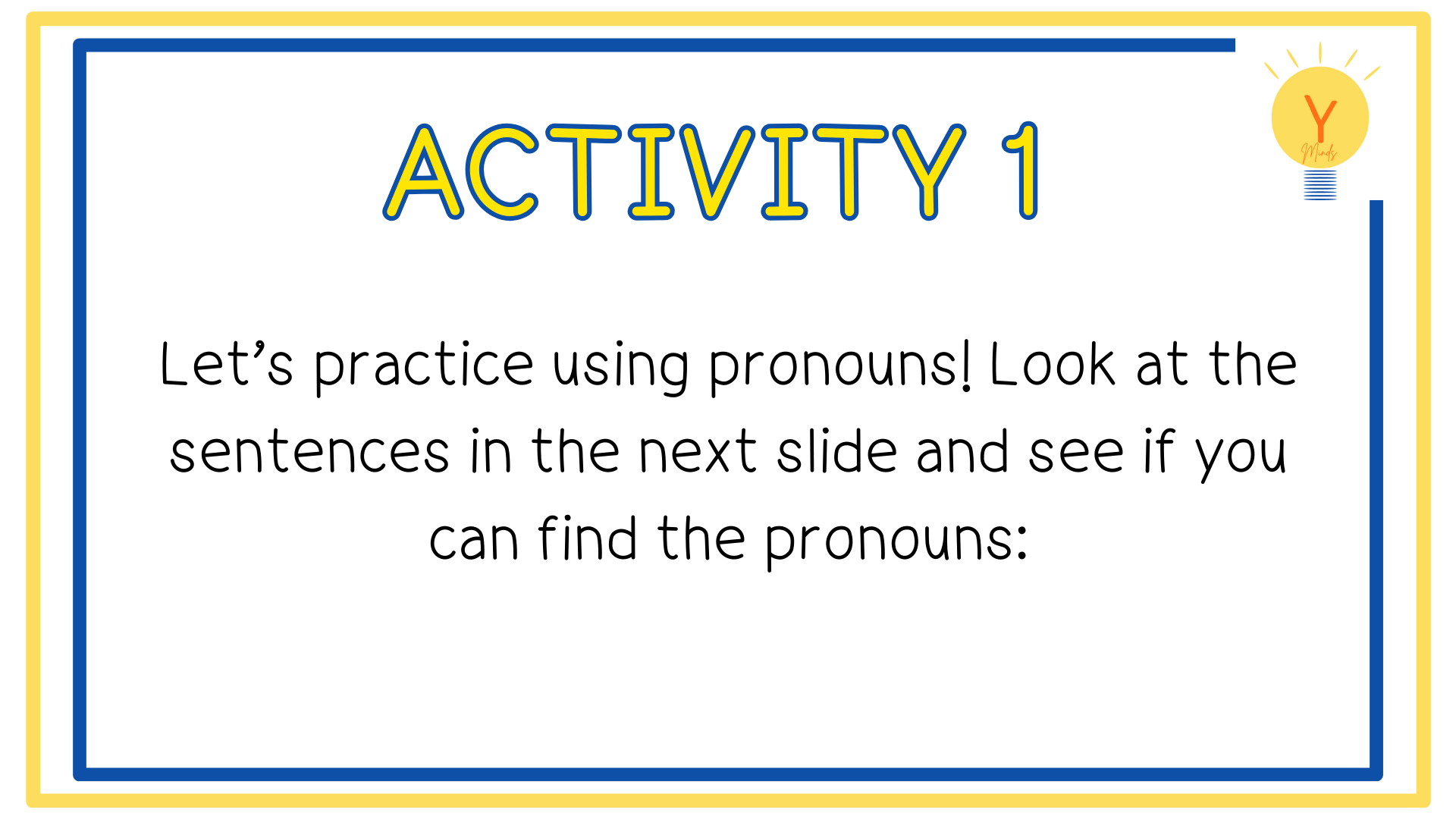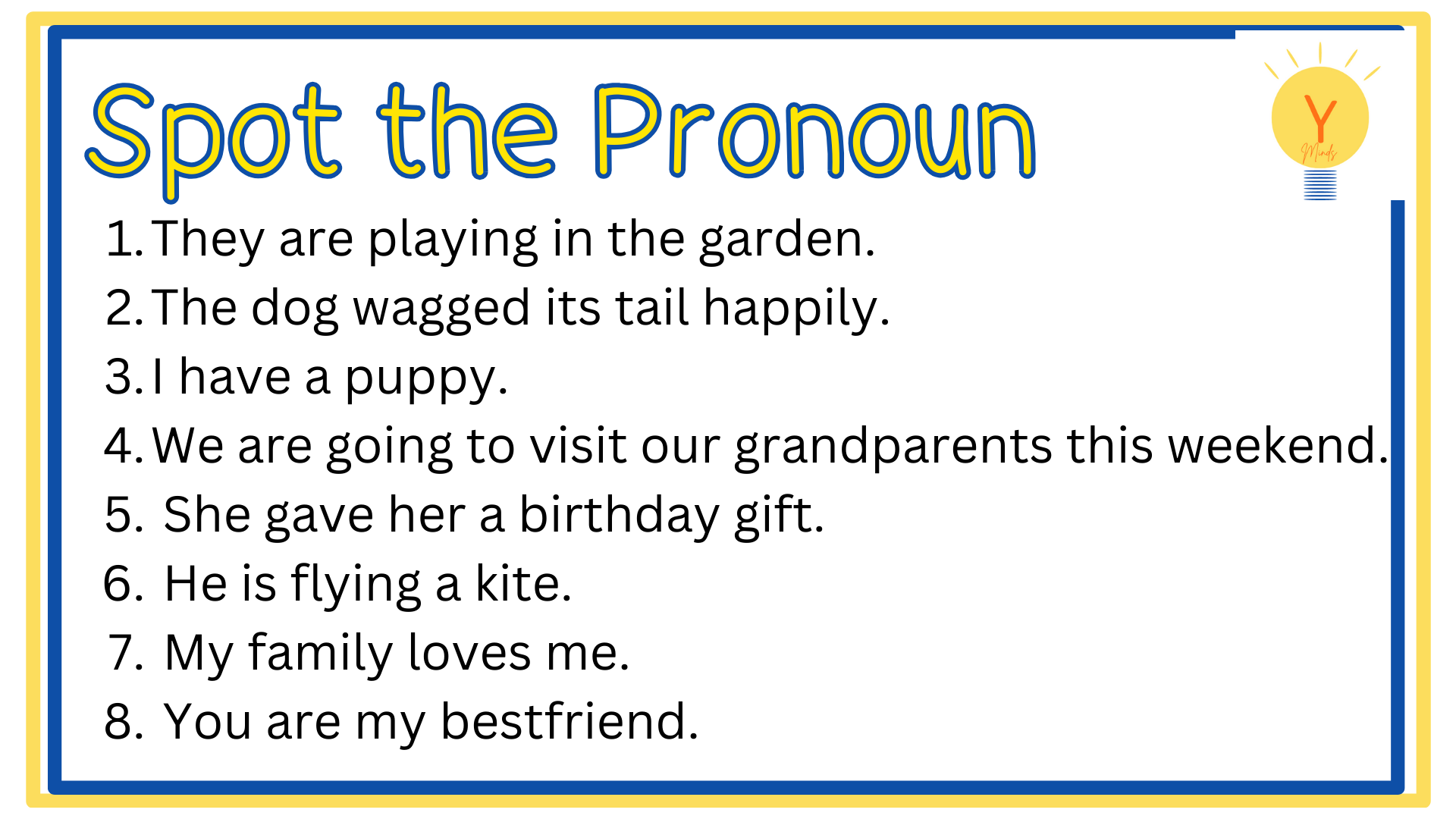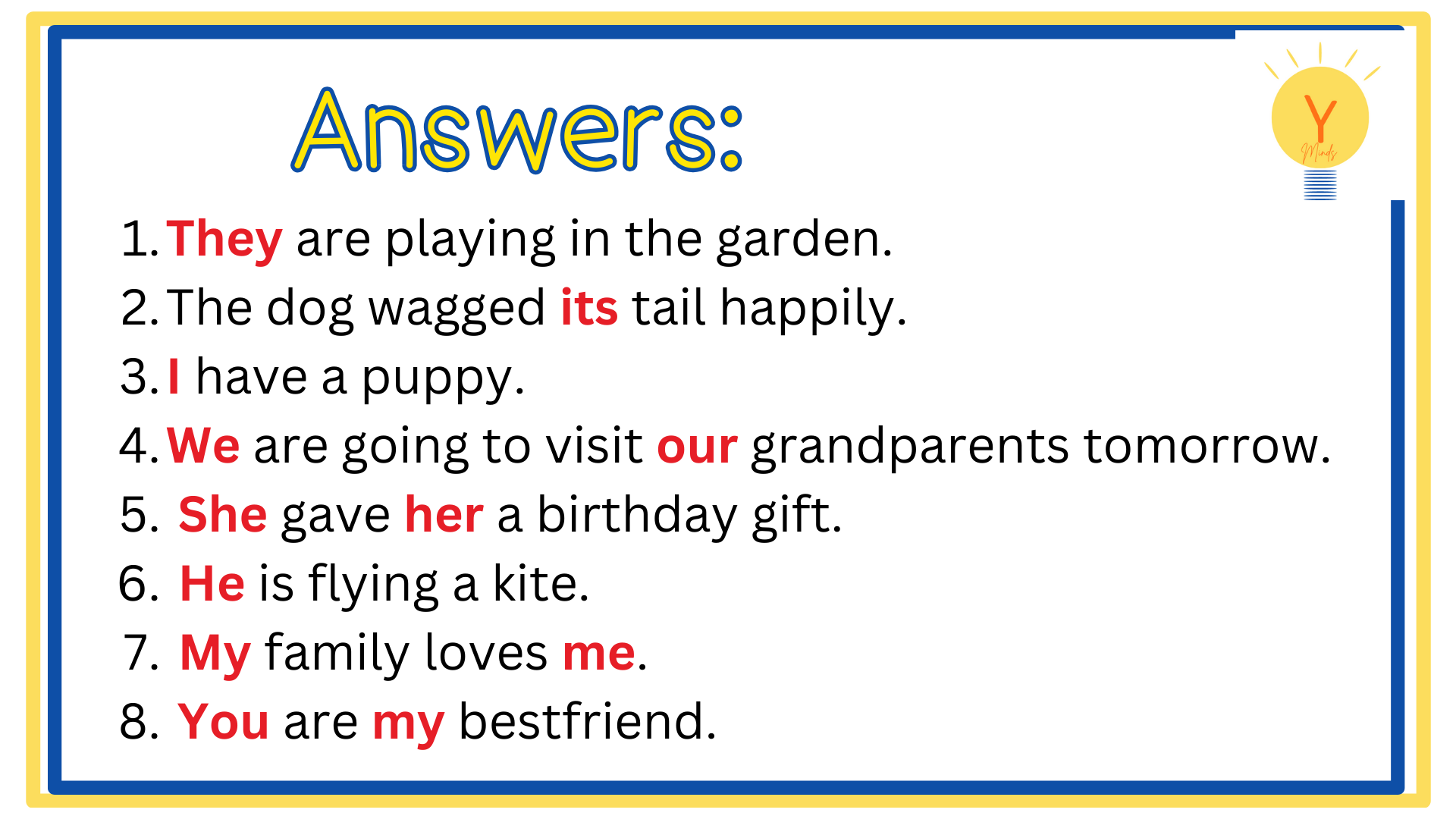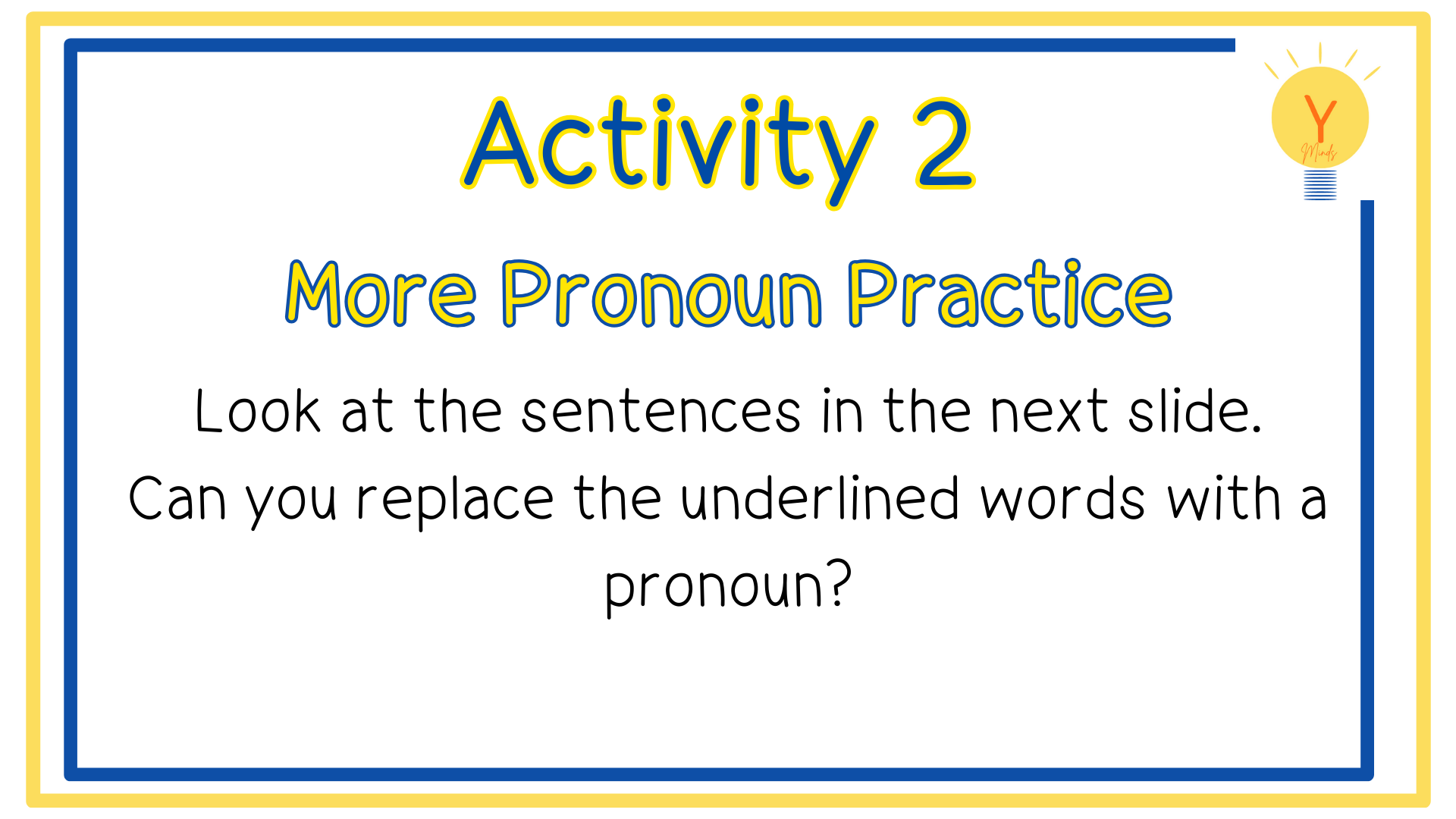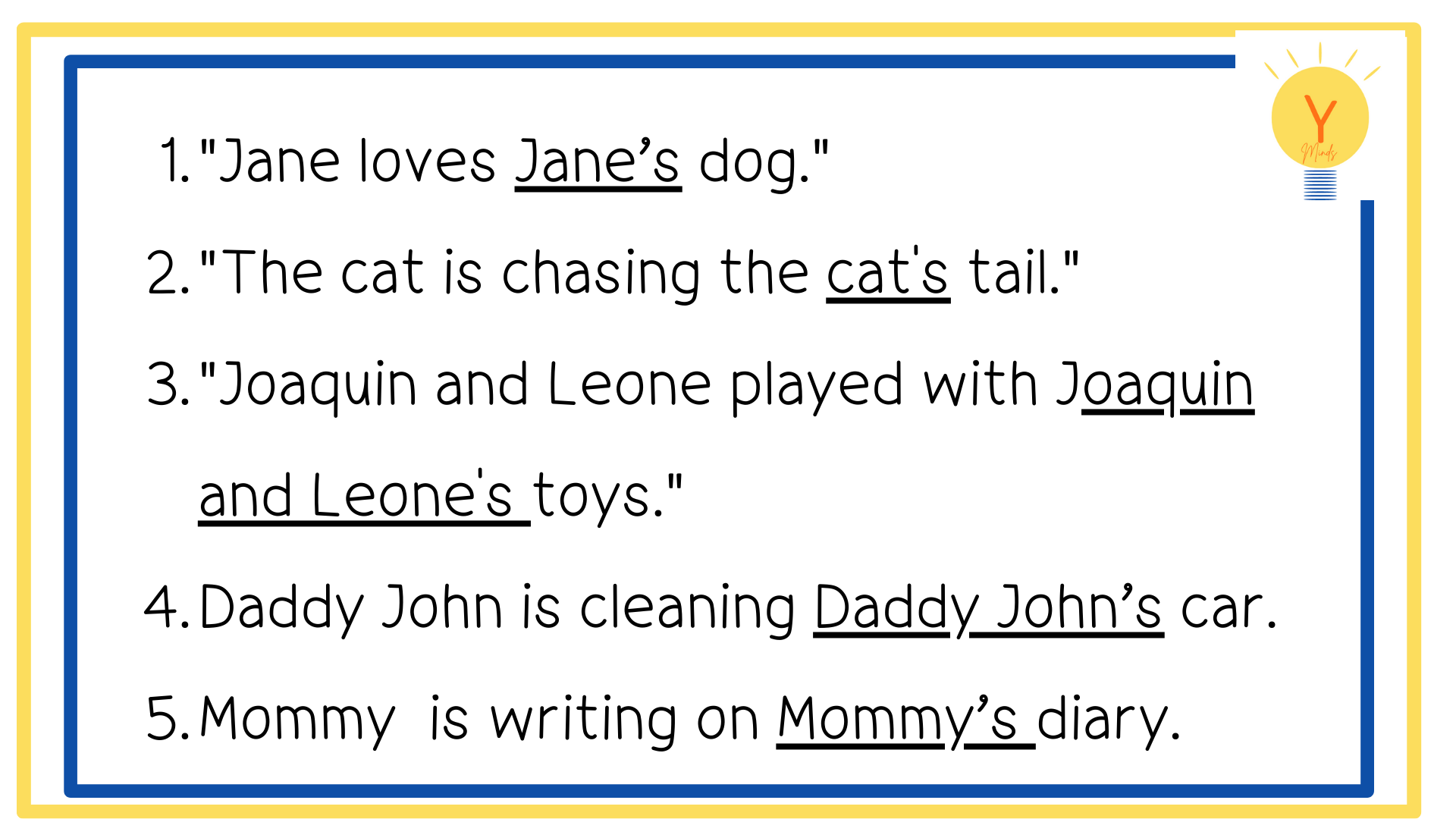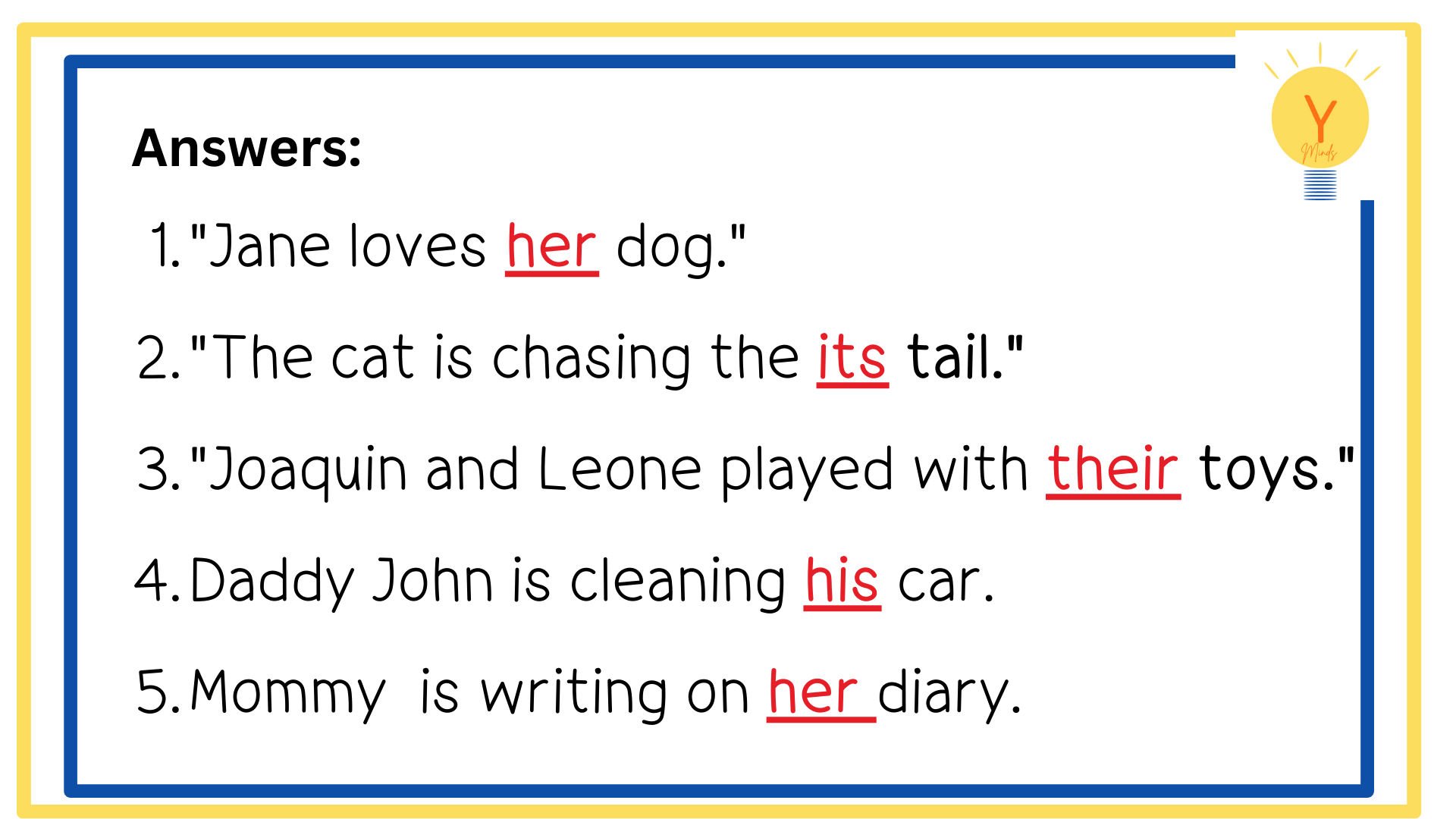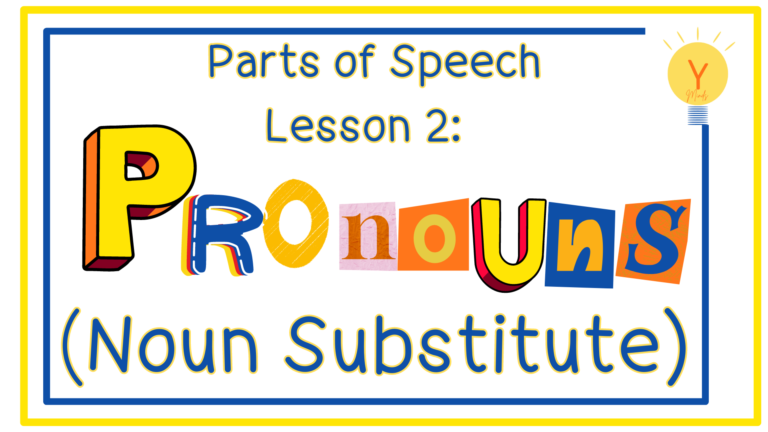
Hi, super learner! Today, we’re going to learn about pronouns—those magical words that take the place of nouns and help us avoid saying the same thing over and over again. Isn’t that cool? Let’s dive in!
What Are Pronouns?
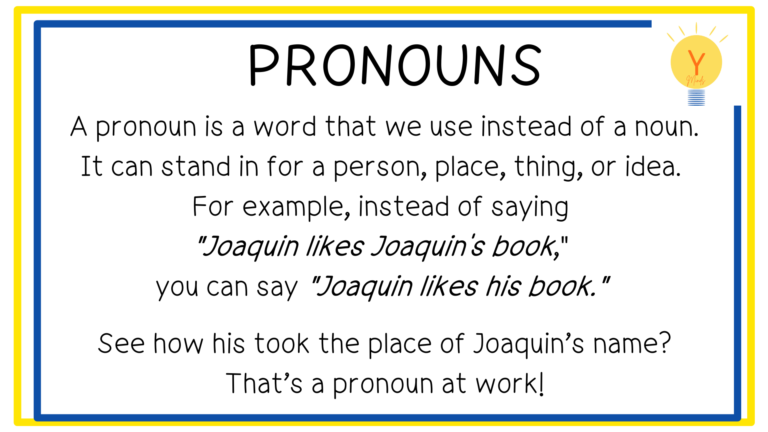
Why Do We Use Pronouns?
Pronouns make our sentences shorter and easier to understand. They help us not repeat the same words again and again, which makes speaking and writing more fun!
Using Pronouns in Sentences
Let’s look at how we can use pronouns to make our sentences better:
- Without pronouns: Leone went to the store. Leone bought oranges. Leone likes oranges.
- With pronouns: Leone went to the store. He bought apples. He likes them.
See how much smoother that sounds? That’s the magic of pronouns!
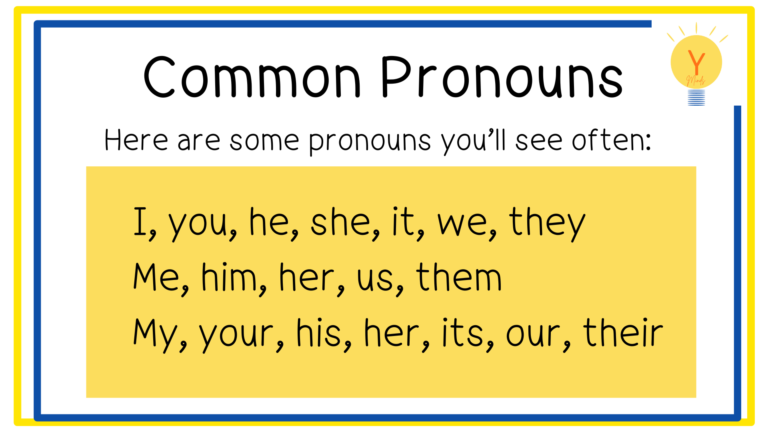
Common Pronouns
Here are some of the most common pronouns we use every day:
- I: Used when you’re talking about yourself.
- Example: “I love ice cream!”
- You: Used when you’re talking to someone else.
- Example: “You are my best friend.”
- He: Used for a boy or man.
- Example: “He is riding his bike.”
- She: Used for a girl or woman.
- Example: “She is reading a book.”
- It: Used for an animal, thing, or something that’s not a person.
- Example: “It is raining outside.”
- We: Used when you’re talking about yourself and others together.
- Example: “We are going to the park.”
- They: Used for more than one person, animal, or thing.
- Example: “They are playing soccer.”
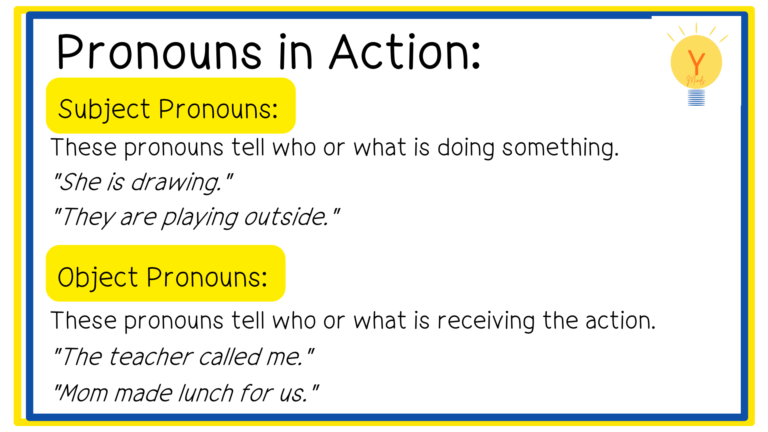
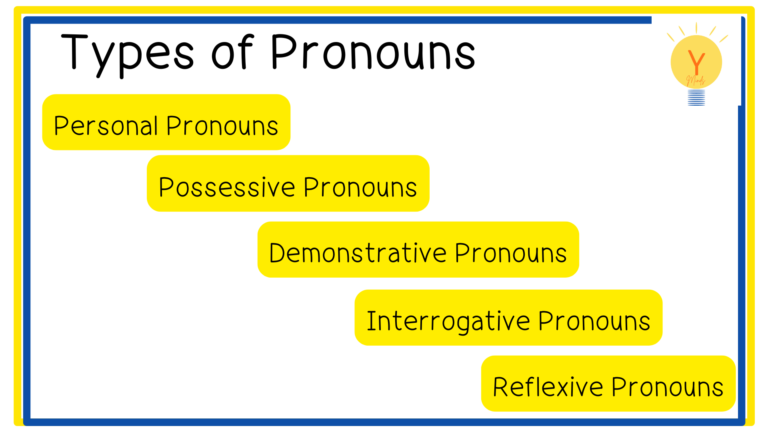
Types of Pronouns
There are different types of pronouns that we can use:
- Personal Pronouns: These replace specific people or things.
- Examples: I, you, he, she, it, we, they
- Example Sentence: “We are going to the zoo.”
- Possessive Pronouns: These show that something belongs to someone.
- Examples: my, your, his, her, its, our, their
- Example Sentence: “That is her doll.”
- Demonstrative Pronouns: These point out specific things.
- Examples: this, that, these, those
- Example Sentence: “This is my favorite toy.”
- Interrogative Pronouns: These are used to ask questions.
- Examples: who, what, which, whose
- Example Sentence: “Who is your teacher?”
- Reflexive Pronouns: These refer back to the person doing the action.
- Examples: myself, yourself, himself, herself, itself, ourselves, yourselves, themselves
- Example Sentence: “She made the cake by herself.”
Quick Activity: Pronoun Practice
